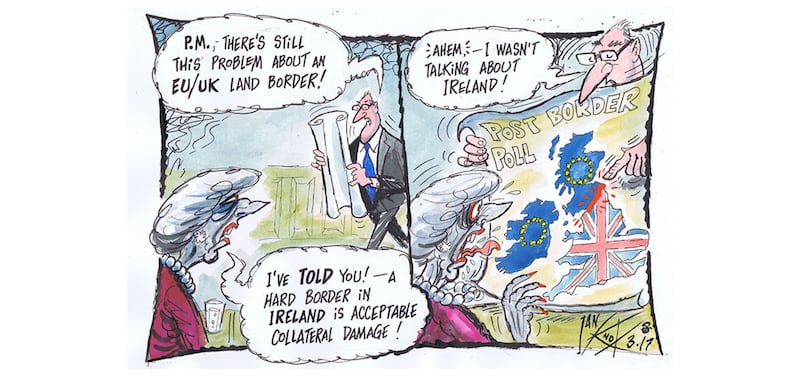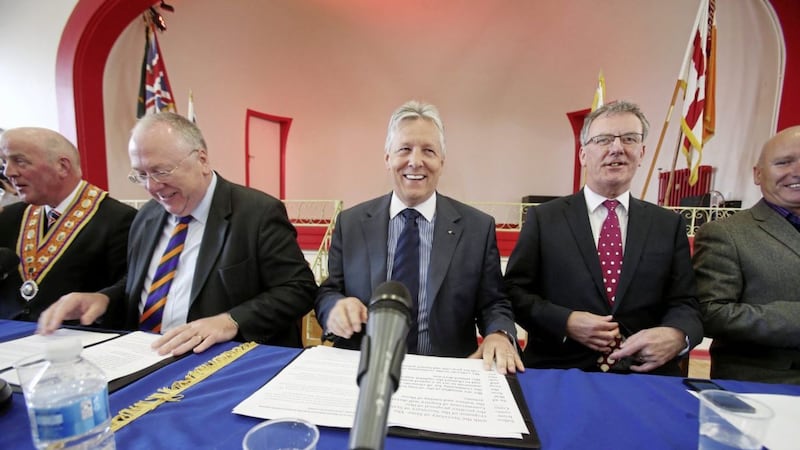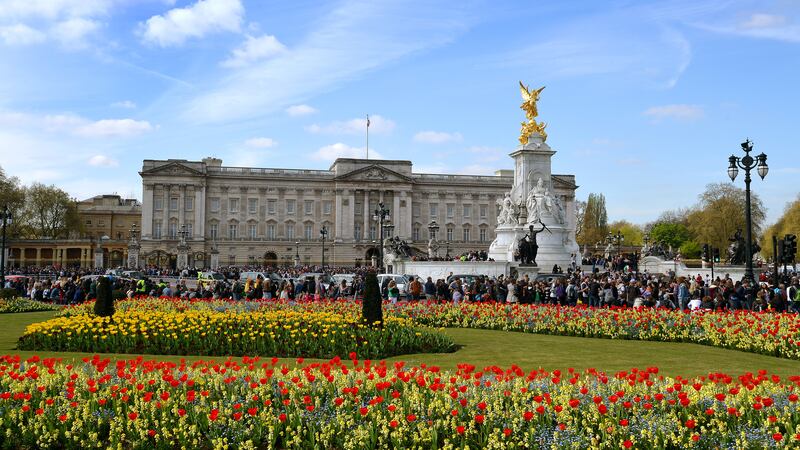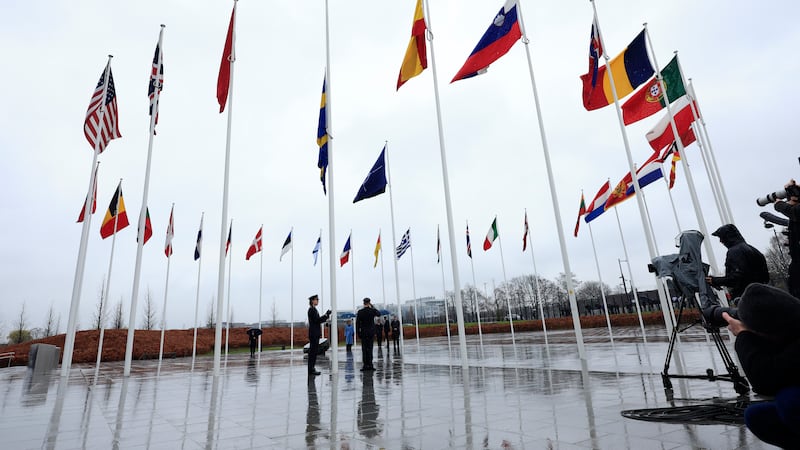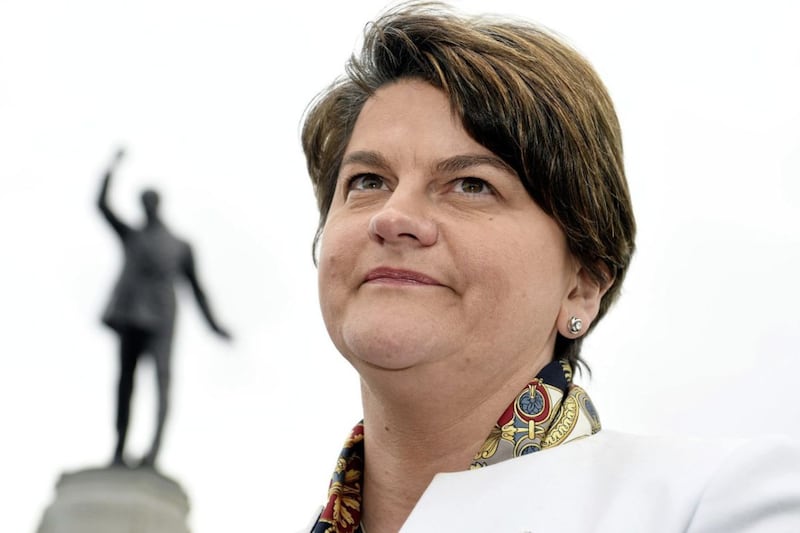As sure as the bunting and flags come out on Sandy Row every July, you can be guaranteed that when the DUP is in trouble it will call for greater unionist unity.
It was Peter Robinson's default position when faced with a crisis – remember the short-lived Unionist Forum and the even shorter-lived graduated response?
Both these initiatives were founded on a broad unionist coalition but the former collapsed amid recrimination and a lack of interest while the latter quickly withered when it had fulfilled its purpose of negotiating past 2015's potentially-explosive Twelfth.
Arlene Foster previously highlighted the need for unionism to come together in 2014, when reflecting on how unionist unity candidate Rodney Connor had lost Fermanagh-South Tyrone in the 2010 general election by just four votes. The then enterprise minister blamed "unionist in-fighting", suggesting some unionists had thwarted the agreed candidate's victory by spoiling their votes.
That experience led to a unionist pact in the 2015 Westminster election, when Tom Elliott won Fermanagh-South Tyrone for the Ulster Unionists in a trade-off that enabled the DUP to take back East Belfast from Alliance.
Of course, once upon time, unionism was united under the Ulster Unionist Party, which dominated Stormont from the foundation of Northern Ireland until the beginning of the Troubles. Unionism then began to fracture over how accommodating it should be towards nationalists and ironically, this division was the genesis of the DUP.
Such divisions within unionism prevail today and occasionally bubble to the surface. While at times relations between Peter Robinson and Mike Nesbitt were healthy, they slowly deteriorated. During the recent election campaign, Mr Robinson's successor was openly hostile to the former UTV anchorman, largely because he hadn't espoused unionist unity.
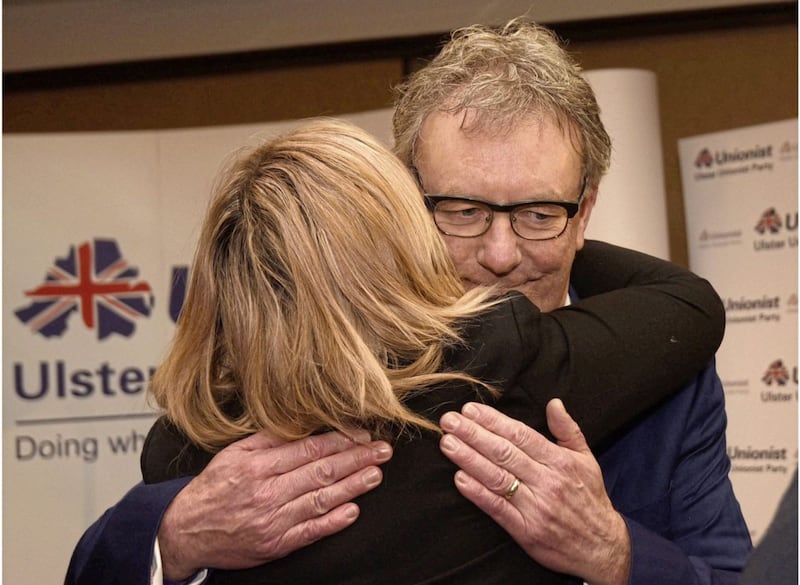
Like his party leader, MP Jeffrey Donaldson is an advocate of unionist unity but isn't entirely clear about what form it should take.
"As the starting point there needs to closer co-operation and we'll see where that takes us," he told The Irish News.
"Many commentators have said that unionism has lost its majority at Stormont, so if unionism wants to regain its position then it has to work together. That's not about dominance, because Stormont doesn't operate on the basis of majority rule, it operates on the basis of consent but clearly it's important for the union that unionism remains in a strong position."
The Lagan Valley MP says where there has been co-operation in the past it has "paid dividends for unionism".
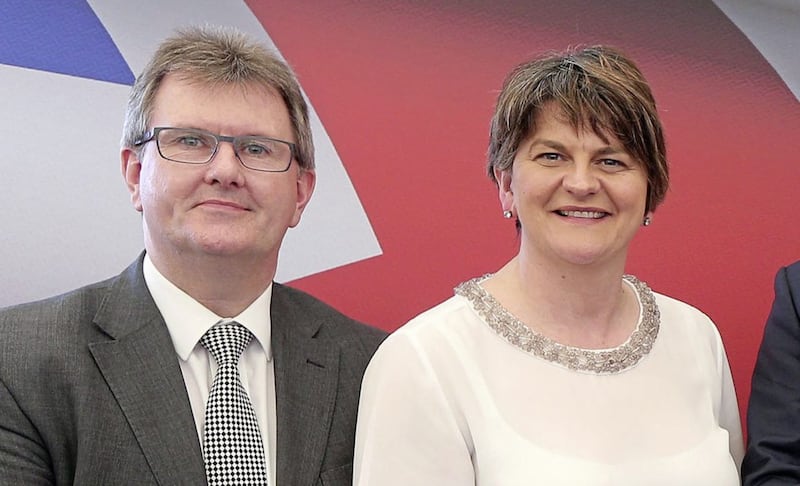
The TUV's Sammy Morrison, who was an unsuccessful candidate last Thursday in Lagan Valley, also believes the election result should act as a catalyst for unionism unity but he thinks that solidarity should be in the rejection of devolution.
"Unionism needs to reassess where it has been going for the past 20 years," he said.
"Unionism has bought into a system which elevated the political wing of a terrorist organisation to the heart of government and has put them in a position when at the moment of their choosing they can topple the government – and that's what they did."
He maintains that the arguments against direct rule from a unionist perspective and "particularly from a conservative perspective within the DUP" are now greater because the expected introduction of same sex marriage and abortion reform mean there is no advantage in unionists sustaining Stormont.
TUV leader Jim Allister echoed these sentiments yesterday: "Returning to the essence of unionism – one nation, one parliament, one people might be no bad thing."
Notably, though Mr Morrison doesn't believe unionism will adhere to the TUV's proposed strategy because individual parties "put self-interest first".
Perhaps unionist unity is doomed from the start because while those who describe themselves as unionist may share a constitutional perspective, they have diverse opinions on many social and economic issues. There are also very different attitudes to nationalists and republicans.
For instance, could a unified unionism accommodate Sammy Morrison and former Ulster Unionist deputy leader John McCallister?
The latter thinks not: "My difficulty with attempts at unionist unity is that they tend to circle the wagons, which puts moderate unionists off.
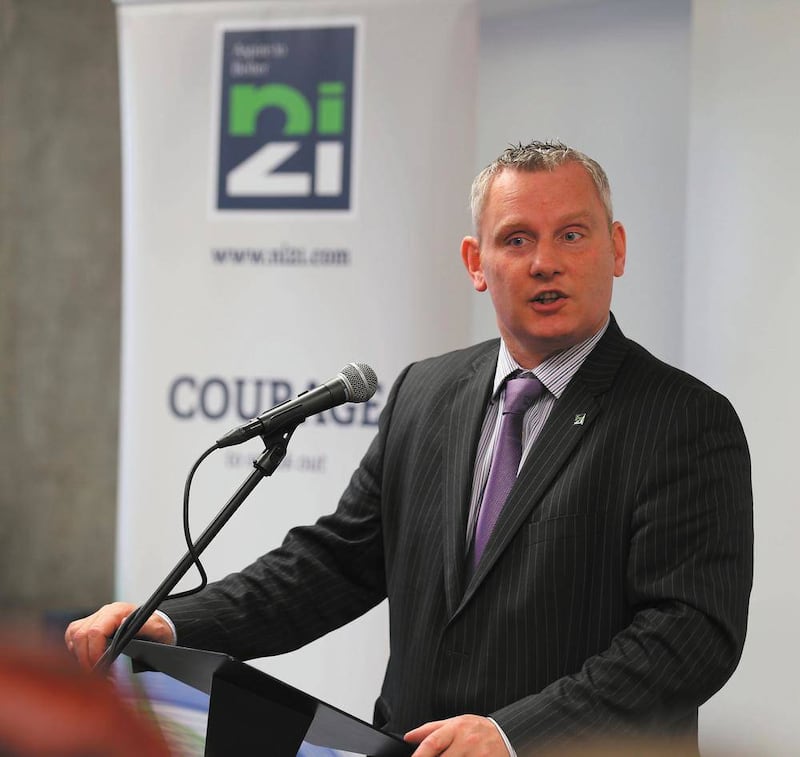
"Rather than expanding your base you narrow the pool of people who you are seeking support from."
Mr McCallister believes that instead of seeking to consolidate, unionism should be more sincere in reaching out to "mythical Catholic unionists" and "show more generosity".
And of course the corollary of unionist unity is a consolidation of pan-nationalism, a move which former SDLP special adviser Brendan Mulgrew believes would not be healthy.
"I can't see any formal alliance between the two nationalist parties and I think its healthy that voters do have a choice, within communities and across the communities," he says.
"That keeps all parties on their toes, does away with complacency and accommodates different social and economic policies within the overall question of national identity and aspiration. If future elections are reduced to nothing more than nationalist versus unionist, that's a bleak, narrow picture."
